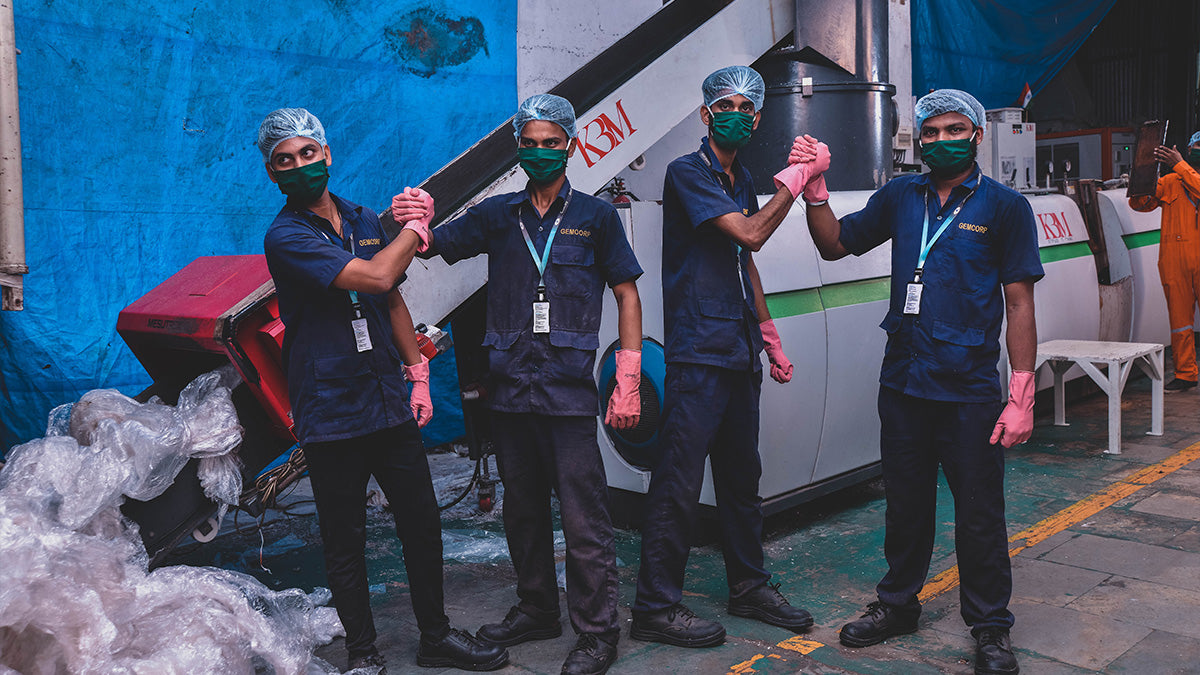LET’S LAY THE GROUNDWORK
Plastic waste reclamation can be a commercial activity when that waste can be recycled and traded at a market price. However, many plastic waste streams, such as ocean-bound films, waterway, and fishing nets, are too costly to collect, clean, and transport to make recycling economically feasible. Even worse, plastic waste with no potential market value has zero economic incentive for recovery and proper disposal. Globally only 9% of plastic waste is successfully recycled. Another 50% is landfilled and 19% is incinerated, leaving a whopping 22% that evades waste management systems entirely. That 22% may be disposed of in uncontrolled dumpsites, burned in open pits releasing harmful greenhouse gasses, or left polluting the environment (oecd.org). This will unfortunately remain the status quo until incentives for reclamation of this mismanaged waste are introduced.
BRIDGING THE GAP
There are a few primary ways to incentivize the collection of these lower-value feedstocks. In all instances intervention in the form of outside funding or regulation is required:
Plastic Credits: Similar to carbon credits, plastic credits are commercially scalable and tradeable.
Government Funding: Governments may choose to invest in, subsidize, or charge residents for waste management. This does not occur in every country.
Government Regulation: Extended producer responsibility policies make producers financially responsible for mitigating the environmental impacts of their products and packaging.
Non-Profit Organizations: NGOs may be funded to address plastic waste, but scale and impact tends to be limited by ability to fundraise.

PLASTIC CREDITS & ADDITIONALITY
Plastic credits – or plastic offsets – are transferable certificates that represent the reclamation and proper disposal of a specified weight of plastic waste that would not have been recovered and/or recycled in the absence of the credit.
Additionality is an important characteristic of plastic credits because it indicates that the crediting mechanism creates a real reduction in plastic pollution. A project activity is additional if the plastic credit results in reclamation of plastic waste in excess of what would have occurred in its absence. Additionality may be calculated as the costs of collection and recycling in excess of the market price of the resulting resins or based on the penetration of recovery and recycling in a given region.

OCEANWORKS IMPAC+ IN MUMBAI
Mumbai has a garbage problem. With rising population levels and limited dumping grounds available, proper waste management is a constant growing concern. Not only is waste threatening the coastal ecosystem by damaging the mangroves essential for oxygenating and filtering the surrounding water, but the skyrocketing cost of living has forced settlement at the doorstep of these toxic dumping grounds.
Oceanworks is working with a local IMPAC+ project, which aims to strengthen Mumbai’s recycling ecosystem in a just and equitable manner, focusing on efficient logistics, provision of finance for working capital, upliftment and education. The recycling industry in India is generally unorganized, with many of its actors working in informal and precarious conditions. This project is trying to standardize the unregulated recycling sector in India, providing training and machinery, eliminating child labor, introducing fair wages, sanitation, health & safety, and insurance.
The plastic credit mechanism incentivizes the collection of ocean-bound plastic films that otherwise are too expensive to return to the circular economy. In addition to fair wages, the program brings baling equipment to collectors in these underserved communities as well as training to ensure safe operation with the goal of helping these reclamation programs work towards independent commercial viability.
